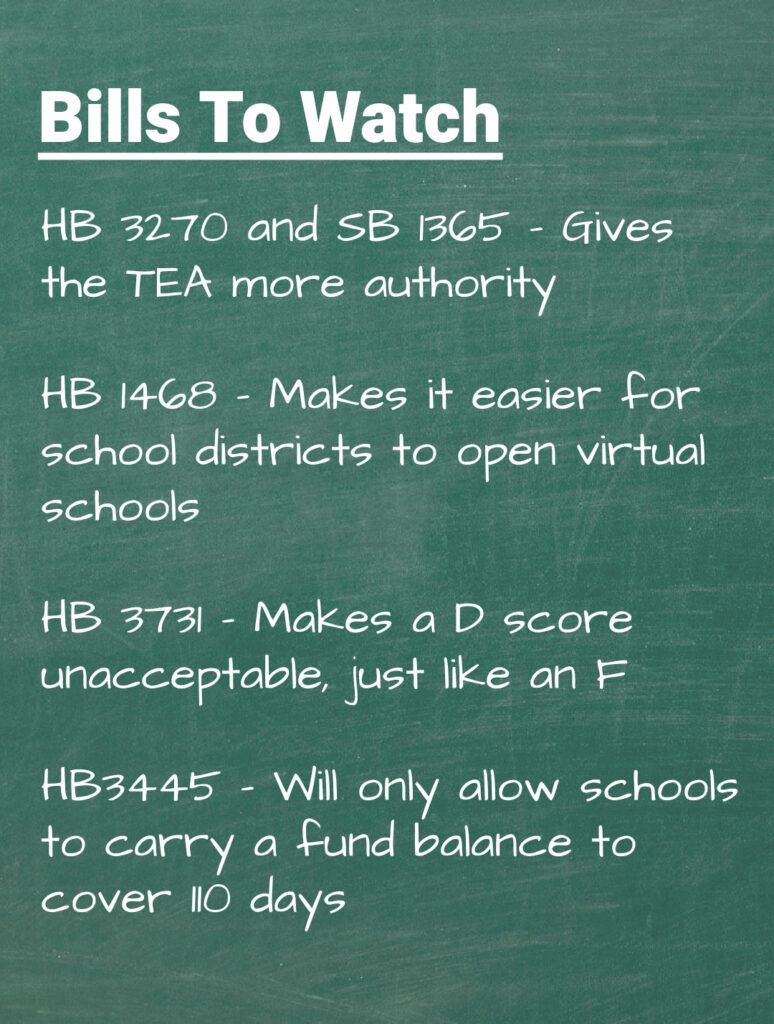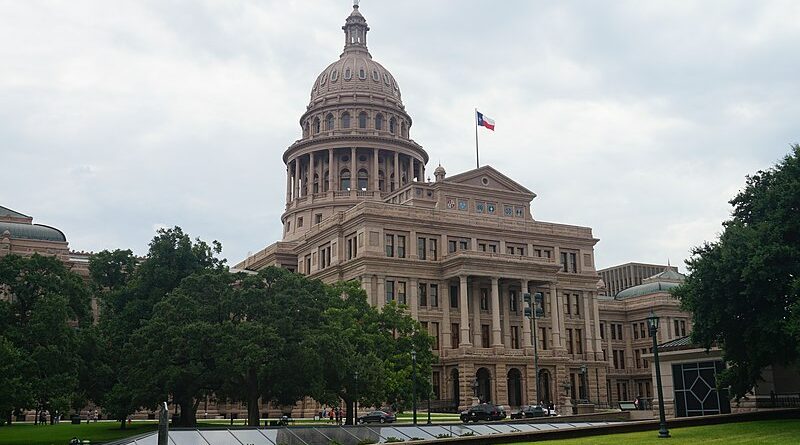Bills Take Aim at Local Control, Finances, and Ratings for Districts
Those gathered for the Dallas ISD board of trustees’ monthly briefing in April knew Superintendent Michael Hinojosa meant business when he took his mask off so his words wouldn’t be muffled.

“I’ve had both my shots,” he said. “I’m not gonna mince any words about what I’m going to talk about with the legislature.”
And he didn’t.
Hinojosa started by giving the good news — House Bill 1468, authored by Keith Bell (R-Forney), clears the way for schools to continue to offer virtual schooling past the pandemic, such as Denton ISD’s all-virtual elementary school and Dallas ISD’s hybrid elementary school at Stephen J. Hay, both slated to open next year.
“For our new school, this would be extremely helpful,” Hinojosa said. Bell’s bill made it out of committee and onto the Texas House calendar, which means it stands a good chance of making it to the floor.
But from there, it was all downhill.
Hinojosa did not hold back, first outlining issues with House Bill 3270 filed by Harold Dutton Jr. (D-Houston) as a companion bill to Senate Bill 1365 filed by Paul Bettencourt (R-Houston). Dutton’s bill would provide much wider authority for the Texas Education Commissioner, including making the commissioner’s decisions and orders final and unappealable. After a lot of debate, the bill moved out of committee on a 7-6 vote.
“What this bill does is … it expands the commissioner’s authority,” Hinojosa explained. “It was debated hotly, and was approved on a 7-6 vote to move forward to the entire House of Representatives.”
According to state law, if a school spends an extended (and consecutive) time on the “Improvement Required” list that is compiled based on state accountability ratings, one of three things can happen: The school can be shuttered by the district it sits in, the district can contract with a outside company to turn the school into a charter school, or — if the district doesn’t do either — the TEA can take over the district and install its own board of managers.
In the case of Houston ISD, the TEA cited both the continued Improvement Required status for one school, and alleged violations of state law by the school board. Houston ISD is arguing that the TEA is acting beyond its authority.
“Right now, you have to meet certain thresholds in governance, accountability, and your finances. Some of those guardrails are not in this proposed legislation,” he added.
Trustee Joyce Foreman said that Dutton’s desire to address the low performance of his alma mater, Wheatley HIgh School, in Houston ISD. In 2019, Texas Education Commissioner Mike Morath ruled that the Texas Education Agency would take over Houston ISD, replacing its elected school board with a board of managers.
The district and the TEA are battling it out in court, with the TEA so far losing its case. The agency is appealing to the state Supreme Court.
“He is very upset that Wheatley has been low performing for nine years. To make matters even worse for him, the commissioner wanted to take over Wheatley, but Houston ISD went to court, and the commissioner hasn not taken over,” she said. Dutton wants the TEA to take over, she said.
“We want to make sure there just isn’t a wholesale takeover of schools, particularly urban school districts,” she said. “There’s a method to his madness, but it all revolves around the school that he graduated from in Houston.”
“Texas Education lost in the courts, and this law will fix everything they lost on, and it makes it unappealable,” Hinojosa said.
Hinojosa said that usually in cases like this, a so-called “bracket bill” would be filed — legislation that is worded specifically to impact only the district that was the impetus for the proposed law.
“There’s no appetite for it on this committee,” he said. Foreman said she is attempting to “get in touch” with Dutton to discuss the matter.
Hinojosa said the bill will likely pass on the floor, but will go to a conference committee.
“This is bad governance, and for it to be unappealable, I don’t know how that’s legal,” he added.
Dutton also filed HB 3731, which will make a grade of D in the state’s accountability ratings equal to an F.
“Then why have both a D and an F?” asked trustee Edwin Flores.
“That’s our point,” Hinojosa said. “Why have a D and an F if a D is failing?”
State Rep. Dan Huberty (R-Kingswood) filed HB 3445, which would only allow school districts and charter schools to carry a fund balance equal to 110 days of district operating expenses.
“It says that school districts have too much fund balance,” Hinojosa said. “If you have more than 110 days of fund balance, you either have to lower your tax rate, pay down debt, or the commissioner can take your money that exceeds the 110 days.”
Hinojosa said this is troubling for districts like Dallas ISD, who have worked hard to strategically build a fund balance that can withstand all the variables that can be thrown at an urban school district (even a tornado). The district built the fund balance, he said, “by being efficient and by being good stewards of the money.”
“And this board took a referendum to the community to fund our strategic initiatives and to park that money in a fund balance so that we would have future money for pre-K, so that we would have future money for strategic compensation, that we would have future money for these kinds of issues,” he said. “This bill would put those goals in jeopardy for our school district.”
Hinojosa’s update left trustees upset.
“Everybody cheered in 2019 that we got HB3, but even with all the advances it made, it still leaves Texas as one of the least funded school state systems in the country,” said trustee Dan Micciche. “These proposals are horrendous.”
Flores asked Hinojosa for some prognostication.
“Where are we – are we on ‘hair on fire’ or are we just annoyed? Where are we in that range?” he asked.
“The danger is that if the chairman or the leadership is involved in the bill, “nothing else will get done until they get their way,” Hinojosa replied.
That being said, Hinojosa said he’s not certain that HB3455 will pass because “it got a lot of pushback.”
Dutton’s bill giving the TEA wider authority, he said, is already on the house floor.
“That one, you need to worry about.”









